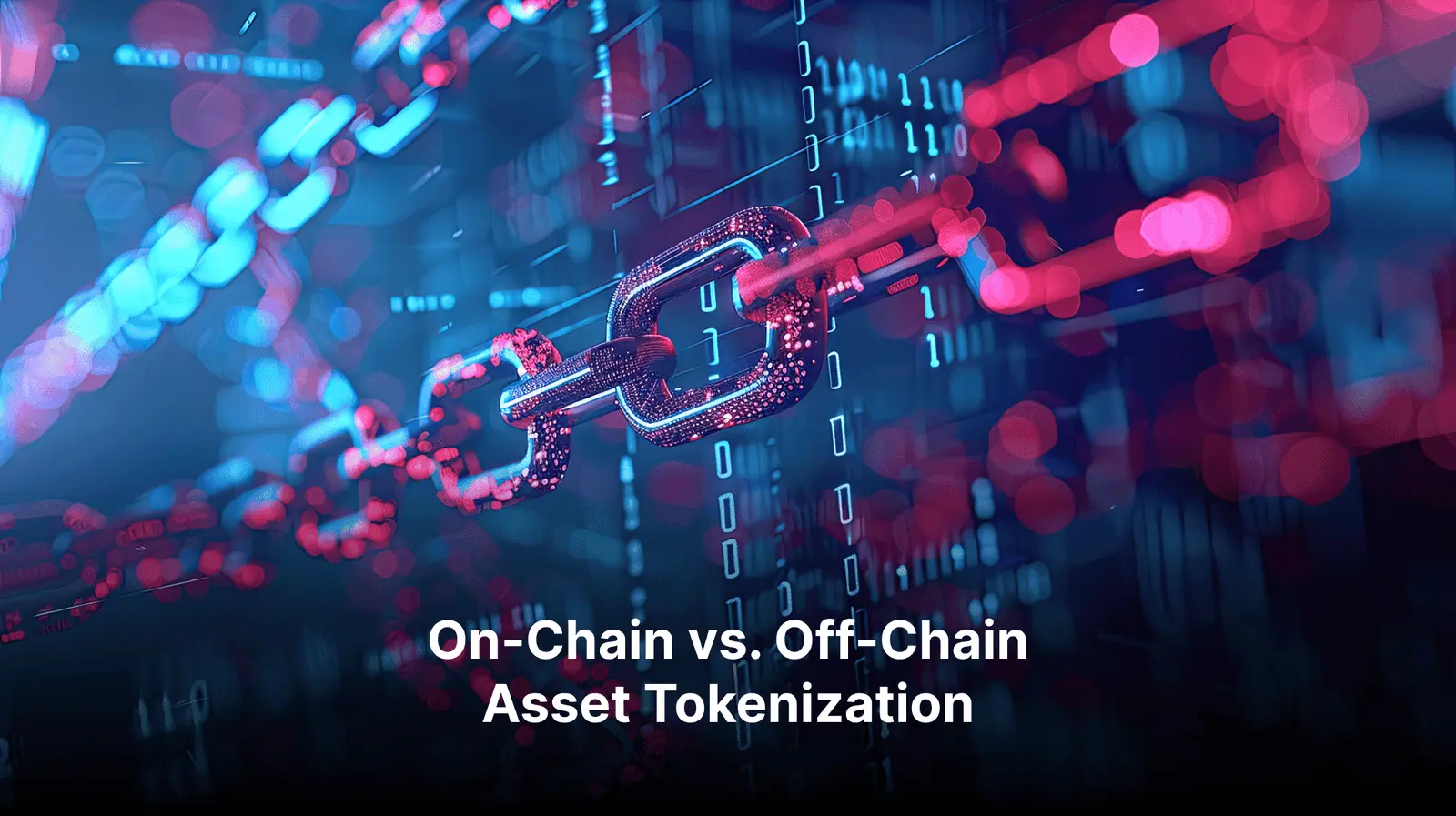As blockchain adoption continues to grow, on-chain vs off-chain tokenization has become a pivotal consideration for businesses exploring asset digitization. These two approaches to tokenization offer distinct benefits and challenges depending on asset type, operational requirements, and compliance needs.
This article delves into the differences between on-chain and off-chain, their key use cases, and how Blockchain Solutions can guide businesses in adopting the right strategy.
What Is On-Chain Asset Tokenization?
On-chain asset tokenization involves storing all asset data and transaction records directly on the blockchain. This approach leverages blockchain’s transparency, immutability, and automation to ensure secure and efficient token management.
Key Features
- Transparency: Data is fully visible and traceable on the blockchain, fostering trust.
- Automation: Smart contracts automate processes, reducing the need for intermediaries.
- Security: Blockchain’s immutable ledger prevents tampering and fraud.
Use Cases
- Digital Assets: Cryptocurrencies and native blockchain assets thrive with on-chain management.
- DeFi Applications: Tokens integrate seamlessly with decentralized finance protocols, enabling activities like lending, staking, and trading.
- Small-Scale Projects: Low-regulation environments are ideal for fully on-chain asset management.
For more on how blockchain technology powers tokenization, explore our Blockchain Basics guide.
What Is Off-Chain Asset Tokenization?
Off-chain asset tokenization stores critical data, such as ownership records, outside the blockchain while maintaining references or verification data on-chain. This method is highly suited for managing sensitive or high-value assets that require flexibility and scalability.
Key Features
- Data Management Flexibility: Handles large datasets efficiently while keeping the blockchain footprint minimal.
- Compliance Support: Keeps sensitive information off-chain to align with local regulations.
- Scalability: Avoids blockchain throughput limitations, ensuring smoother operations.
Use Cases
- Real Estate: Deeds and property records remain off-chain while fractional ownership tokens are on-chain.
- Commodities: High-value assets like gold or oil use off-chain mechanisms for secure tracking and storage.
- Institutional Investments: Banks and financial institutions favor off-chain models for controlled environments.
Learn more about custom blockchain solutions for tokenization through our custom blockchain development services.
Key Differences
| Feature | On-Chain | Off-Chain |
|---|---|---|
| Data Transparency | Fully visible and auditable | Limited to what is stored on-chain |
| Security | Blockchain’s immutable ledger ensures safety | Relies on external systems for data security |
| Regulatory Fit | Suitable for low-regulation environments | Better for compliance-heavy industries |
| Scalability | Limited by blockchain throughput | Offers higher scalability and flexibility |

How Blockchain Solutions Helps Businesses Decide
At Blockchain Solutions, we specialize in helping businesses determine whether on-chain or off-chain is the best fit for their goals.
Our Evaluation Process Includes:
- Asset Type Analysis: Identifying the asset’s characteristics and regulatory considerations.
- Operational Alignment: Tailoring strategies to align with business objectives.
- Compliance Assurance: Ensuring models meet jurisdiction-specific regulations.
If you’re unsure which tokenization model is right for your business, explore our blockchain strategy consulting services for expert guidance.
The Future of Asset Tokenization
The debate over on-chain vs off-chain tokenization is evolving as blockchain technology advances. Hybrid models that combine the transparency of on-chain systems with the flexibility of off-chain solutions are emerging, offering businesses unparalleled efficiency and control.
By adopting the right tokenization strategy, businesses can unlock new opportunities, reduce costs, and enhance operational transparency. Whether you’re digitizing real estate, commodities, or institutional assets, Blockchain Solutions offers the expertise and technology to make it seamless. ls that combine the best of both approaches are emerging, offering unparalleled flexibility and efficiency to meet vision 2030 goals.
